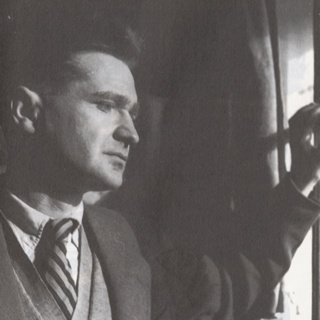
3: “God is Dead!"
Today we'll study the words of a saint, a pope, a madman, the ugliest man, and Zarathustra himself - in order to find out what they all have to tell us about one of the most momentous events in world history, but one which is not yet perceived or understood by the great many. This event is the Death of God, one of Nietzsche's most important ideas and one which lays the groundwork for understanding his thought, and where he saw himself in the context of Western Philosophy. While it is often the case that great attention is given to the infamous passage entitled, "The Madman" - and we'll spend a good amount of time on this passage in this very episode - this particular story is only the first step into the many implication's of God's death. And, of course, we will not be able to get through the episode without addressing ourselves to the elephant in the room, one Dr. Jordan B. Peterson, who has suggested that the Death of God was a sorrowful event for Nietzsche. On the contrary, Nietzsche celebrated the myriad possibilities laid open for humanity, for all the dangers that this entailed, such as the civilizational descent into nihilism. This episode's art is Diogenes by Dutch painter Jan Victors (1619 – 1679)
29 Juni 202158min

2: Wandering Through Ice & Mountain Peaks
In this episode, we discuss the character of The Wanderer. The Wanderer appeared in multiple Nietzsche works, mainly during the period from Human, All Too Human, through The Gay Science. Evidently Nietzsche identified himself with this character. The wandering that Nietzsche did throughout Europe, and while hiking the Alps, paralleled the metaphor of 'philosophical wandering' in Nietzsche's work. We'll also discuss a potential inspiration for Nietzsche, in the motif of "wanderers" in German culture. The significance of philosophical wandering as Nietzsche's approach to philosophy is that Nietzsche's project ends up looking very different from that of most other philosophers. Episode art is Caspar David Friedrich's Der Wanderer über dem Nebelmeer.
23 Juni 20211h

1: How the True World Finally Became a Fable
Welcome to The Nietzsche Podcast! In this first episode, we introduce Friedrich Nietzsche (1844-1900), through the passage, "How the True World Finally Became a Fable", from his book, The Twilight of Idols. In this passage, Nietzsche sketches the history of a particular error in Western philosophy: the error of metaphysics. Nietzsche establishes himself as an anti-metaphysical philosopher, who is against all doctrines of a "True World" that lies beyond our own. In this episode, we touch upon the ideas and historical context of Plato, Descartes, Kant, Schopenhauer, and others. INCIPT ZARATHUSTRA!
23 Juni 202158min

The Nietzsche Podcast Trailer
22 Juni 202154s






















